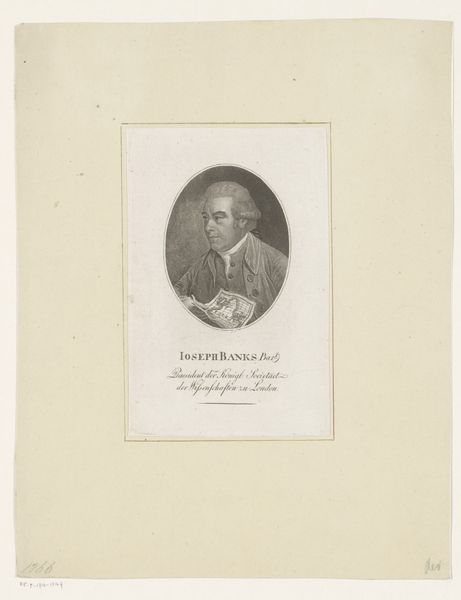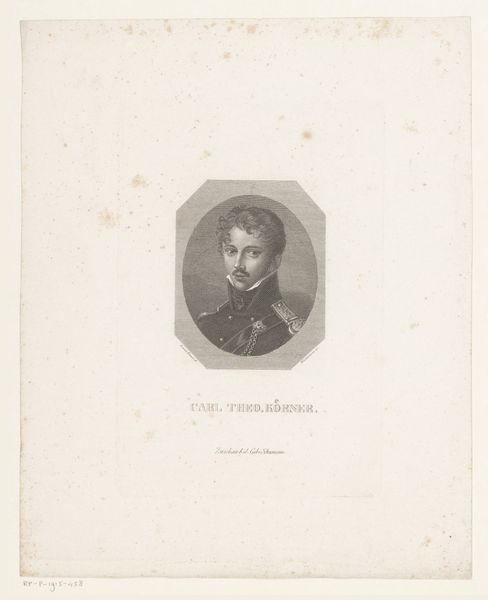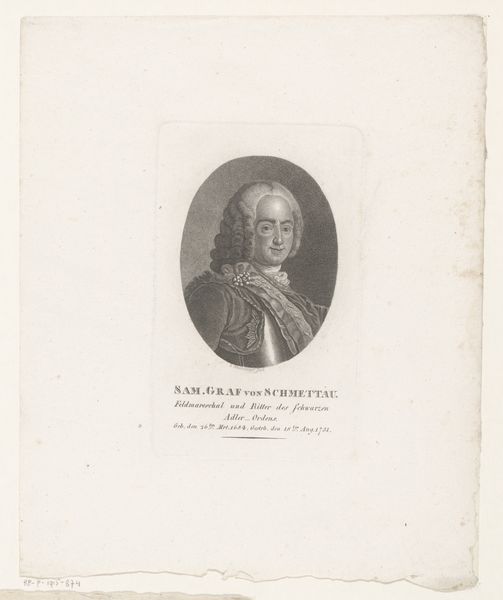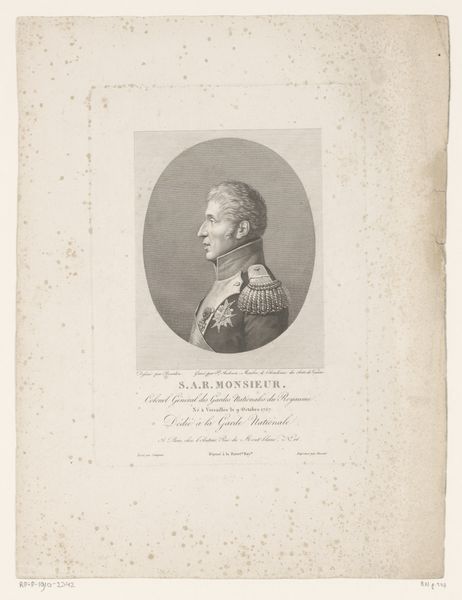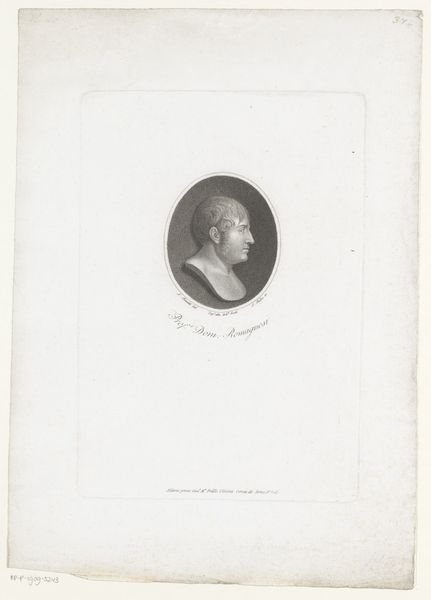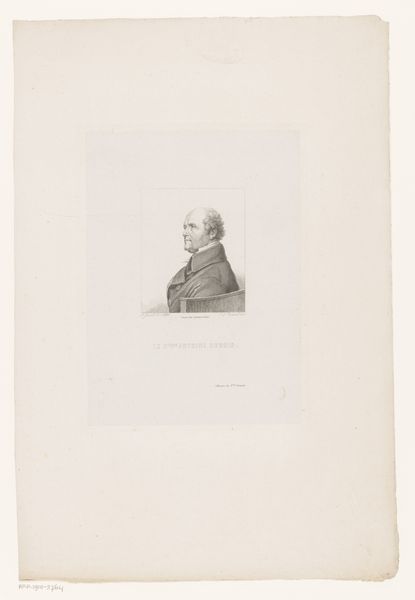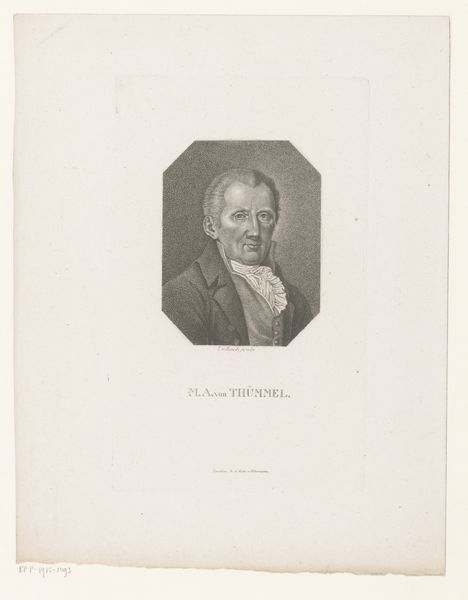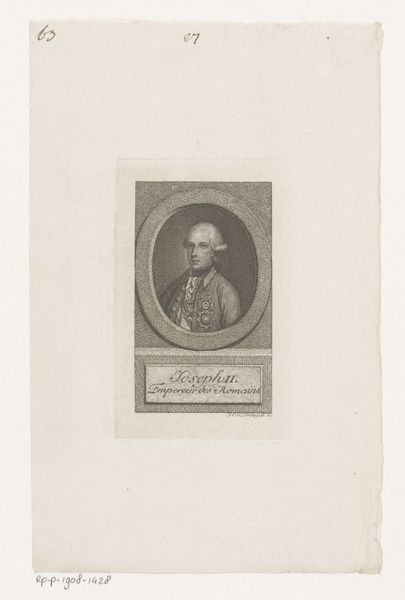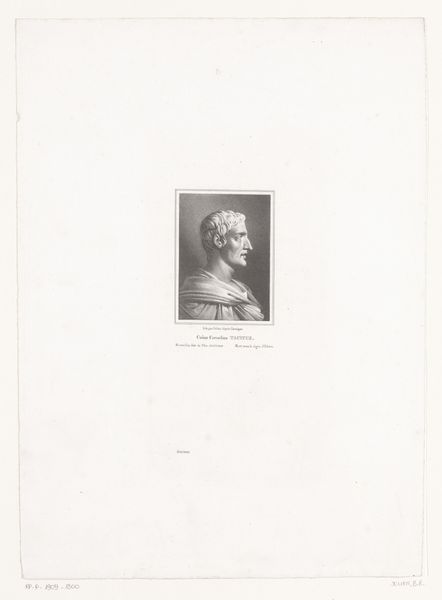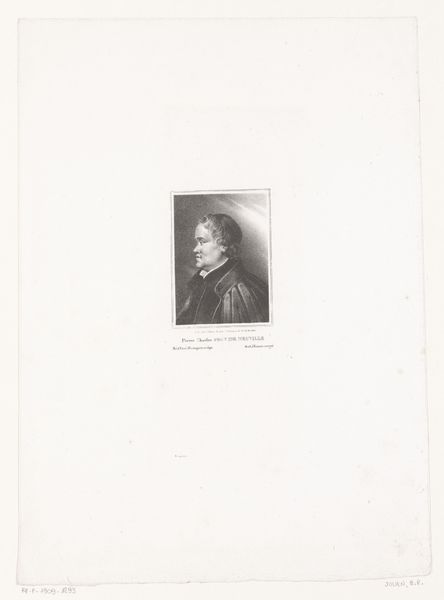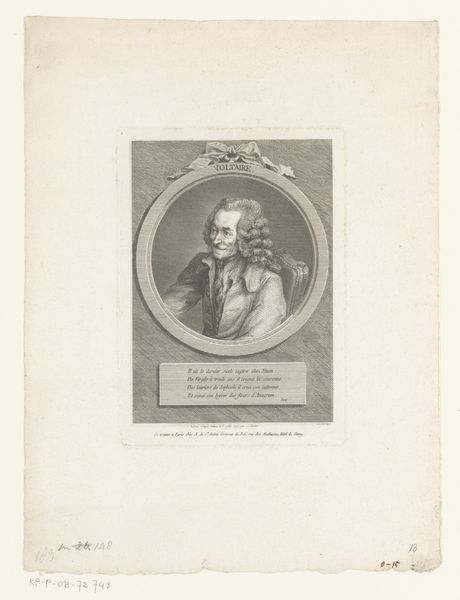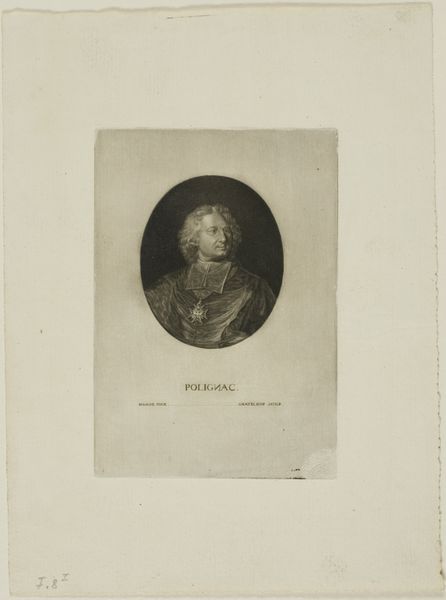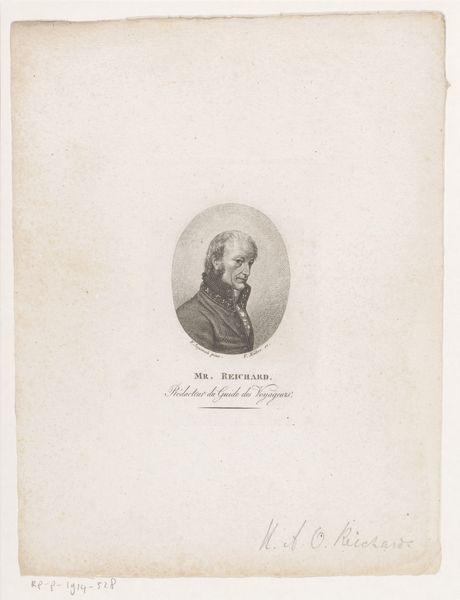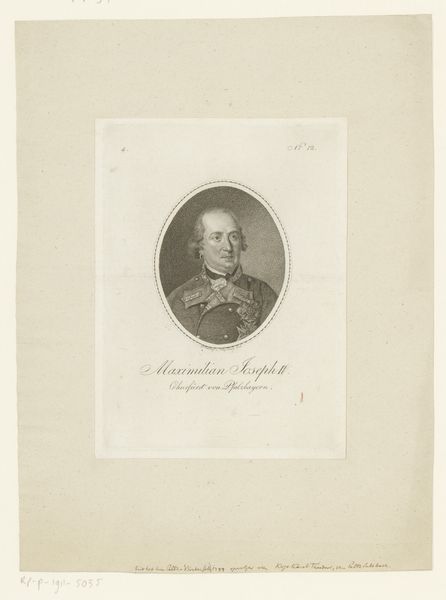
engraving
#
portrait
#
neoclacissism
#
old engraving style
#
history-painting
#
engraving
Dimensions: height 181 mm, width 119 mm
Copyright: Rijks Museum: Open Domain
This is Anton Wachsmann’s portrait of Ferdinand, Duke of Brunswick-Wolfenbuttel. It's difficult to date exactly but we can place it roughly around the late 18th or early 19th century, judging by Wachsmann's lifespan. The portrait is a visual statement about power and lineage. Ferdinand is depicted in military attire, signifying his role as a leader and protector. The style of dress also reflects the conventions of portraiture at the time, where nobility were often represented in formal attire. The image creates meaning through these visual codes, referencing the social hierarchy of the time. Made in Germany, this portrait reflects the importance of noble families, the dukes, princes, and electors, in German speaking lands. To understand this work better, we would need to delve into biographical research, examining Ferdinand’s role in the military and the politics of the Brunswick-Wolfenbuttel duchy. This understanding would give us insight into the social and institutional context that gave rise to this type of imagery.
Comments
No comments
Be the first to comment and join the conversation on the ultimate creative platform.
